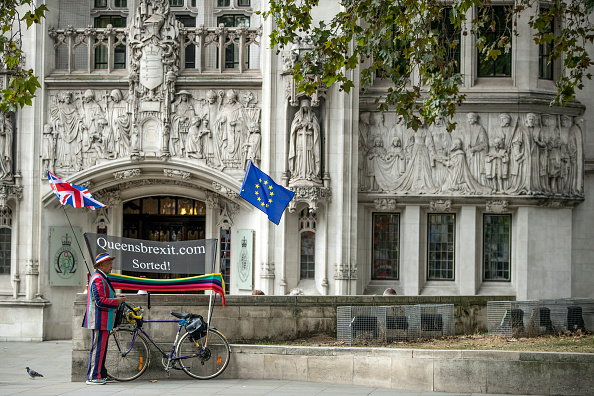Parliament prorogue: Supreme Court to preside over Brexit legal battle

The Supreme Court will today hear a legal tussle over Prime Minister Boris Johnson’s decision to prorogue parliament for five weeks as the countdown to Brexit continues.
The UK’s highest court will hear appeals for two distinct legal cases brought in England and Scotland against Johnson’s move to suspend parliament until 14 October.
Read more: Boris’ Brexit blindside: What the hell just happened?
Johnson has insisted the suspension is necessary to allow the government to outline a new domestic agenda in a Queen’s Speech due on 14 October.
But critics say the proroguing of parliament gives MPs less time in which to scrutinise the government’s Brexit strategy amid fears the UK could fall out of the EU without a deal on 31 October.
Judges in Scotland last week ruled that suspending parliament was illegal, calling it an “egregious” attempt to bypass MPs.
But the High Court of England and Wales swatted down a similar legal challenge in late August, saying it was a political matter. That case was brought by anti-Brexiter Gina Miller and former Prime Minister Sir John Major.

Now the Supreme Court is set to rule on both cases, with its 11 judges due to give a final verdict on the nature of Johnson’s advice to the Queen to suspend parliament.
Johnson has said the last session of parliament was longer than any since the English Civil War.
When asked by the BBC whether he would recall MPs if he loses the legal battle, Johnson said: “The best thing I could do is wait and see what the judges say.”
The Supreme Court is expected to hear the cases until Thursday, with no verdict due before Friday.
The case follows Johnson being controversially ‘empty-chaired’ in a press conference in Luxembourg.
Read more: No-deal Brexit preparation issues still to be resolved, warns City watchdog
What did the Scottish ruling decide?
The Prime Minister’s audacious move to suspend parliament appeared to have backfired after Scotland’s judges ruled that it amounted to an illegal action.
Judges ruled firstly that courts could adjudicate on the legal case.
Secondly, the ruled that the PM’s advice to the Queen to prorogue parliament was unlawful because his intent was to frustrate the process of parliament in the weeks ahead of the 31 October Brexit deadline.
What did the English High Court ruling decide?
London’s High Court went the opposite way to Scotland and ruled that Johnson’s suspension of parliament was not a matter for the courts.
Instead, it said, the prorogation was a political matter and therefore something the courts could not get involved in.
The Supreme Court’s task this week is to reconcile these opposing judgements. First the n11 judges must decide it is a matter for the courts to intervene in. Then they must decide which ruling is correct, and which isn’t.
How could the Supreme Court rule?
The Supreme Court is unlikely to issue its decision until Friday at the earliest. But it faces a tricky ruling, with English and Scottish courts split on whether the PM’s proroguing gambit is legal.
The Institute for Government believes the UK’s highest court will “probably” attempt to make English and Scottish law consistent.
The think tank said the court could “in theory agree with both the English High Court and the Scottish Court of Session, and rule that the prorogation was lawful under English law but not under Scottish law”.
That, the Institute for Government said, would make prorogation unlawful in the UK overall.
Read more: Cameron criticises ‘appalling’ behaviour of Boris Johnson and Michael Gove in Brexit campaign
If Johnson wins the legal case his prorogation will continue interrupted, giving MPs four fewer days to debate Brexit.
Ministers have said they will act according to the court’s decision, so MPs would in theory return to parliament with immediate effect
In that case, the prorogation would be unlawful in the UK overall.